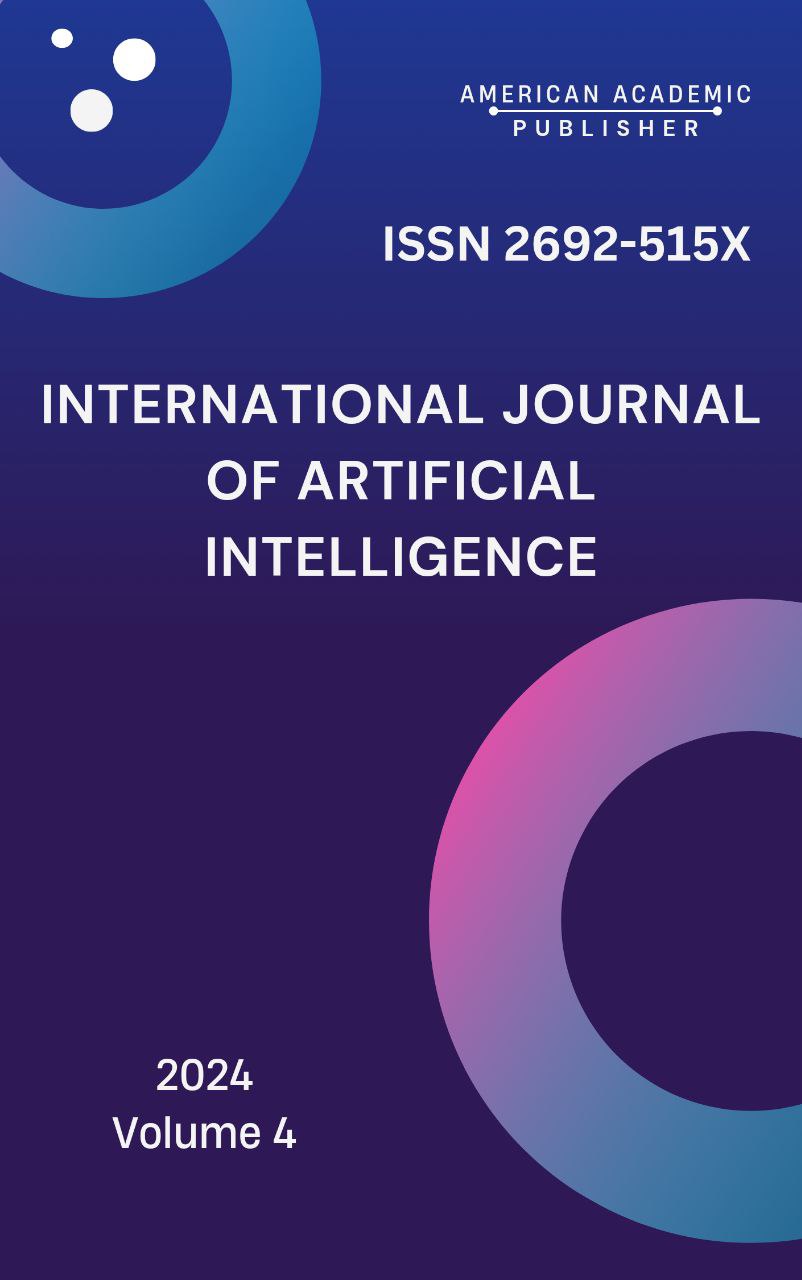 Articles
| Open Access |
Articles
| Open Access | DEVELOPING AN AI-INTEGRATED AUTOMATED INFORMATION-EDUCATION SYSTEM FOR THE LEARNING PROCESS
Y.Sh. Avazov,D.B. Auesbaev , Tashkent State Technical University named after Islam Karimov, scientific adviser Prof.Abstract
The integration of artificial intelligence (AI) in education has opened new opportunities to enhance learning experiences and streamline administrative tasks. This article explores the development of an AI-integrated automated information-education system that personalizes learning, automates repetitive processes, and provides real-time insights. The system aims to create an inclusive, efficient, and adaptive learning environment for students and educators alike. The integration of artificial intelligence (AI) into education has revolutionized traditional learning systems, enabling automation and personalization at an unprecedented scale. This paper explores the development of an AI-integrated automated information-education system designed to enhance the learning process. Key features include adaptive learning pathways, automated administrative functions, and real-time performance analytics. The system aims to improve efficiency, engagement, and inclusivity by tailoring content delivery to individual needs, reducing the workload on educators, and providing accessible learning tools for diverse populations. While challenges such as data privacy and implementation costs remain, this innovative approach promises to transform education into a more dynamic, efficient, and inclusive experience.
Keywords
Artificial Intelligence, Automated Education, Personalized Learning, Adaptive Learning Systems, Educational Technology, Learning Analytics
References
Borisova, L. V. (2018). The use of artificial intelligence in educational technologies. Bulletin of Moscow State University. Series 19. Psychology, 25(4), 100-112. https://doi.org/10.1134/S0189687223040143
Dyakova, M. A., & Golubeva, O. I. (2020). "Digitalization of education: Opportunities and challenges." Scientific Research in Education, 34(3), 22-34.
https://doi.org/10.20472/NIE.2020.34.3.022
Kazakova, S. A. (2021). Intelligent educational systems: From theory to practice. Saint Petersburg: Nauka.
Lapshin, A. N., & Ryabkov, I. V. (2019). "Automation of processes in educational institutions using artificial intelligence technologies." Modern Educational Technologies, 12(1), 45-56. https://doi.org/10.21510/tech_edu_12.1.045
Mironov, V. I. (2017). Artificial intelligence in education: Concepts and approaches. Moscow: Moscow State University Press.
Smirnova, T. A. (2022). "The role of artificial intelligence in the individualization of the educational process." Journal of Theory and Practice of Education, 29(2), 17-30.
https://doi.org/10.24257/jtpe.2022.29.2.017
Timofeeva, N. E., & Shershneva, I. S. (2018). "Integration of artificial intelligence technologies into the higher education system in Russia." Educational Technologies and Society, 21(4), 77-92.
https://doi.org/10.21125/edu.2018.21.4.077
Kharitonova, L. Y. (2019). Intelligent systems in education: Theoretical aspects and practical applications. Yekaterinburg: Ural State University.
Schmidt, V. A. (2020). "Development and implementation of automated educational systems based on artificial intelligence." Journal of Innovative Technologies in Education, 6(1), 13-22.
https://doi.org/10.1234/jite.2020.06.01.013
Yakovleva, I. S., & Volkova, A. I. (2021). "Using artificial intelligence technologies in learning: Approaches and perspectives." Pedagogical Innovations, 17(2), 58-70.
Article Statistics
Downloads
Copyright License

This work is licensed under a Creative Commons Attribution 4.0 International License.

